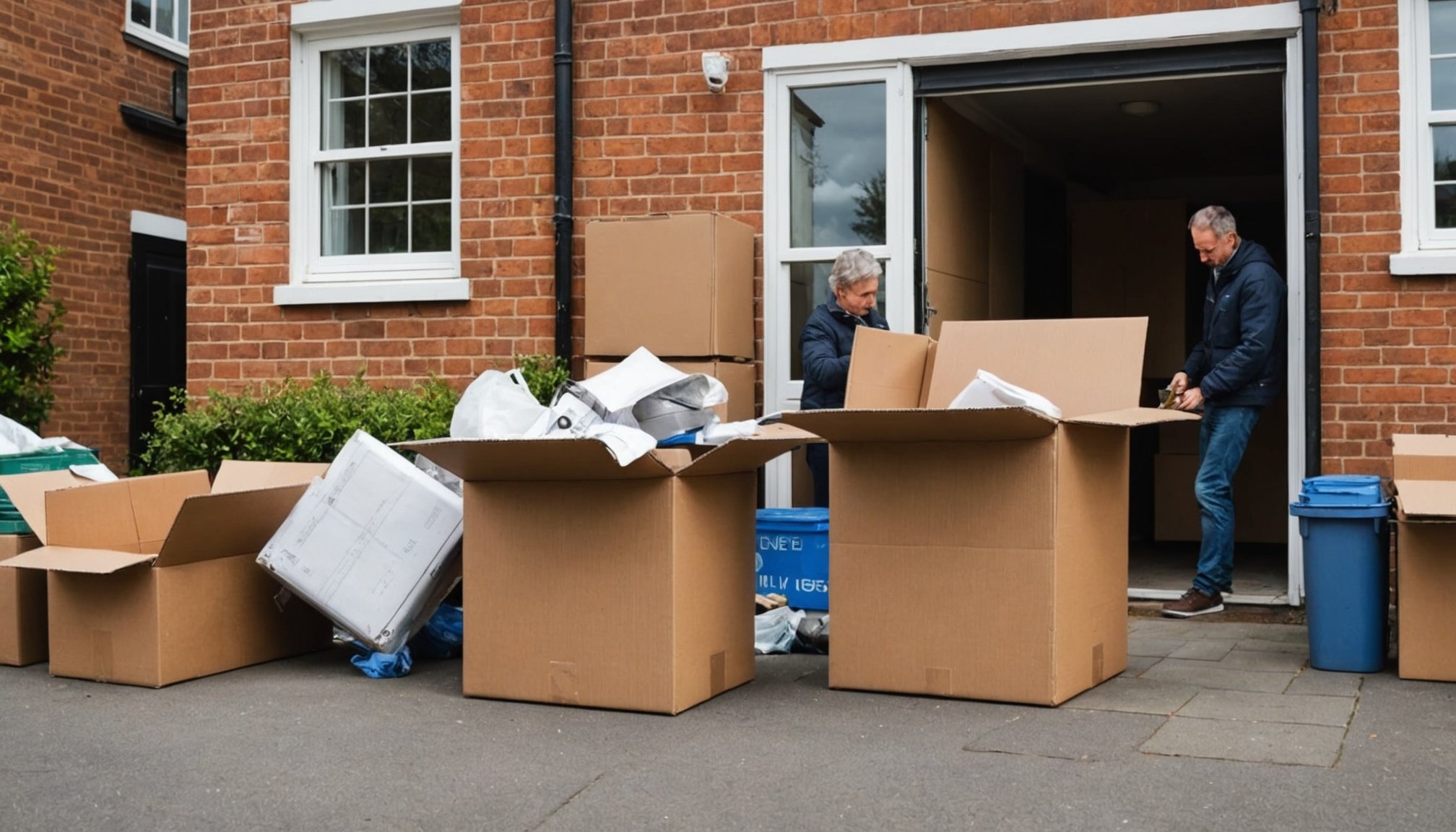Understanding the Importance of Proper Disposal Before Moving
Proper disposal before moving is crucial to ensure a smooth transition and to promote sustainable practices. Managing unwanted items efficiently will streamline the moving process and can significantly reduce stress. Imagine battling chaos with unnecessary clutter on moving day; it can turn an exciting new chapter into a logistical nightmare. Thus, preparation for moving includes a thoughtful assessment of what truly needs to come along.
Environmental considerations are essential in the preparation. Improper disposal, such as dumping items illegally or discarding electronics carelessly, leads to severe environmental consequences. These actions can contribute to pollution and impose a devastating impact on local ecosystems. Considering these factors highlights the importance of disposal methods that are both legal and eco-friendly.
Sujet a lire : Essential Steps to Safeguard Your Privacy When Relocating in the UK
Engaging in responsible disposal practices also benefits the community. Donating usable items can support local charities, while recycling helps conserve resources and lower landfill waste. Moreover, choosing sustainable disposal methods fosters a sense of community and environmental stewardship, encouraging others to follow suit. Through responsible practices, you contribute to a healthier environment and community even amidst the often overwhelming process of moving. Embrace a prepared and environmentally conscious approach for a hassle-free and socially responsible move.
Step-by-Step Methods for Disposal
When it comes to moving, knowing the essential steps for item disposal is key to a smooth transition. Here, we explore various disposal methods and provide helpful moving tips to guide you.
Lire également : Essential Packing Strategies for Safely Moving High-Value Art Pieces Across the UK
Preparing Items for Disposal
Begin by sorting and categorizing belongings. Identify which items are worth keeping, which can be donated, and which need disposal. Assessing the condition of items helps in deciding if they are reusable. Create a disposal timeline, linking key dates to your moving schedule to streamline the process and reduce last-minute stress.
Donation Options
Identifying local charities and organizations to donate to is crucial. Always check the guidelines for donating items—many organizations have specific needs or restrictions. Donating before a move offers multiple benefits, including reducing moving costs and contributing positively to the community.
Recycling Guidelines
Understanding recyclable materials in the UK is important for effective disposal. Familiarize yourself with local recycling regulations to ensure compliance. Finding nearby recycling centers is a smart move, as it ensures efficient and environmentally-friendly disposal of items.
Waste Disposal Regulations
Navigating local waste disposal options requires understanding legal considerations. Be aware of the consequences of non-compliance, as improper disposal can lead to penalties. By adhering to official guidelines, you ensure a hassle-free moving experience.
Timing and Logistics for Disposal
When planning a move, it’s crucial to coordinate the disposal timing to ensure a smooth transition. Begin by outlining a timeline for item disposal approximately two months before your move. This allows ample time to organize logistics effectively and avoid last-minute stress.
First, assess items to be discarded, donated, or recycled. It helps to create a sorting system, dividing items into categories for easier handling. Next, tie in the disposal activities with your overall moving logistics. Align these tasks with your upcoming schedule to streamline the process. For example, if your move is set for a Saturday, aim to finish disposal activities at least a week prior, allowing time for unforeseen delays.
Donating and recycling are integral to responsible disposal and require careful planning. Organize transportation for donations to ensure charitable items reach their destination without hiccups. Similarly, plan for recycling pickups, keeping local guidelines and schedules in mind. This may involve scheduling appointments with recycling centers or coordinating with municipal services.
Lastly, keep communication open with all parties involved, such as moving companies and donation centers, to ensure everyone is aligned with your disposal timing. This approach not only simplifies your moving process but also makes it environmentally friendly.
Resources for Responsible Disposal
Finding suitable disposal resources for your items can simplify the process, making it not just responsible, but also rewarding. A range of charities and organizations are eager to accept donations, helping you contribute positively to your community. Whether it’s clothing, furniture, electronics, or other household goods, these entities often provide pick-up services or convenient drop-off points. For instance, charities like the Salvation Army and Goodwill are widespread and well-equipped to handle a variety of items.
You may also want to contact local recycling centers. These centers often offer specific guidelines for materials such as paper, plastics, and electronics. Keep their contact information handy to enquire about their accepted materials. They can offer detailed advice on sorting and preparation to ensure your items are processed correctly.
For those preferring digital assistance, numerous online resources and tools are available for efficient disposal planning. Websites like Earth911 can provide tailored recycling information based on your location. Furthermore, apps like RecycleNation help identify nearby options and offer reminders for waste collection schedules. Leveraging these tools and community support ensures your disposal journey is as eco-friendly and efficient as possible.
Personal Testimonials and Case Studies
Real-life experiences provide valuable insights into the process of successful disposals before moving. Many individuals have shared their personal stories of how they tackled the overwhelming task of decluttering and rehoming items responsibly. One particularly moving experience involved a family who managed to donate almost all of their unneeded furniture. In doing so, they learned the importance of community networks and local charities in facilitating this kind of success.
Another success story highlights the lesson of starting early. A couple found that by planning and categorising items months in advance, they could achieve a seamless moving process while also benefiting local shelters with useful contributions. Their story serves as an encouragement for others to be proactive and engaged in responsible disposal initiatives.
These moving experiences prove that while the task might initially seem daunting, the satisfaction of knowing that items have found a new home and reduced wastefulness is immensely rewarding. The key lessons learned include effective planning, utilising support from networks, and the positive impact of success stories. These experiences should inspire others to approach their disposals thoughtfully and responsibly, creating a ripple effect of benefits for the community and environment.











